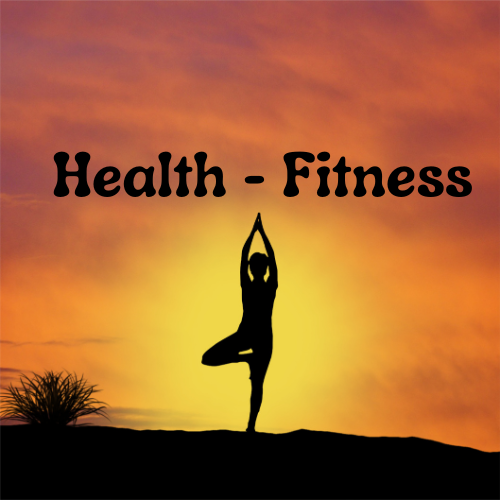Welcome, Absolute beginners!
It can be scary and challenging to know where to begin while practising yoga for the first time. Our handbook, Yoga for Beginners, was written just for you to provide you with all the advice, principles, and suggestions you'll need to begin a fruitful yoga practise. We strongly advise you to read this full page before beginning any yoga in order to assure your success.
Describe yoga.
In order to achieve a state of awareness or oneness with the universe, yoga integrates mind, body, and spirit through a large array of spiritual practises and procedures. Hatha Yoga, one of the various paths of yoga, is actually what is commonly referred to as "yoga" in the West. Although the many yoga traditions emphasise various methods and practises, they all ultimately lead to the same state of union and enlightenment.
Through the practise of asanas (yoga postures), pranayama (yoga breathing), mudra (body gestures), and shatkarma, Hatha Yoga achieves the unity of mind-body-spirit (internal cleansing). These physical exercises are done to cultivate prana and cleanse the body (life-force energy).The emphasis of modern Hatha Yoga is more on the physical aspects of yoga poses than many of these esoteric techniques.
Whatever your aims are while beginning yoga, the poses themselves are a terrific form of both mental and physical fitness.
Yoga: Is It Right for You?
Yoga is not an exclusive kind of exercise; anyone can practise it regardless of age, weight, occupation, place of residence, or religious affiliation. Yoga is available to almost everyone.
Certain styles of yoga, particular poses, or breathing exercises can be difficult or hazardous if you have a medical condition or a recent injury. Many common issues have specific yoga therapy treatments, and there are usually alternatives or adaptations that might allow you to practise safely. We advised seeking advice from a doctor or other licenced health care provider before starting yoga if you are recuperating from an injury or are in poor health.
What Kind of Yoga Is Best for New comers?
We advise starting with a mild practise if you are unfit or severely rigid until you have developed the strength and flexibility for more difficult sequences. You should be able to join a regular hatha yoga session right away if you are a reasonably flexible and fit individual. When you are comfortable with the fundamental positions, you can try a vinyasa or flow class. Ashtanga, Bikram, and hot yoga are not advised unless you have developed some physical stamina and endurance. It is usually advisable to err on the side of safety and prudence and practise yoga gently and methodically.Try it out first to see if yoga is right for you.
Tips for Doing Yoga
On a sticky yoga mat with optional yoga supports, yoga is often practised barefoot. Clothing that can stretch and move freely with your body is necessary for the yoga poses and motions. Although you can buy clothes made expressly for yoga practise, you can certainly pull together a cosy outfit from your current wardrobe to start.
Additional props may be used in oga courses; the most popular ones are straps, blocks, blankets, and bolsters. You don't need to buy things right away because pillows, a stack of books, scarves, or ties can readily take their place. If you attend yoga sessions there, Everything you require will be given to you by them.
Your Introductory Yoga Session
We advise you to begin with a straightforward, brief yoga practise and gradually increase from there. Once you're at ease with a few fundamental beginner yoga positions, you can add them to a sequence and keep adding increasingly difficult poses. Be sure you understand and practise the five foundational pillars of yoga: breathing, meditation, intention, asanas, and relaxation.
When Should I Practice Yoga?
You will notice noticeable changes in your flexibility, range of motion, strength, balance, inner calm, and general well-being if you can practise yoga three or more times each week. Our ideal recommendation is for 20–45 minute sessions, spaced out over a few days, lasting a total of 3–4 hours. Less yoga practise will still be helpful, but you will notice slower progress over a longer period of time. Similar to other things, the more time you can invest in it, the more rewards you will get.
The Advantages of Yoga
Yoga has so many advantages it's practically endless! Yoga training promotes the development of virtues and moral principles like self-control, honesty, devotion, self-examination, awareness, and non-attachment. You get the ability to make deliberate decisions that lead to a more fulfilling and healthy lifestyle through yoga. Additionally,
yoga benefits include:
- Maintain a sound and healthy mind.
- Relax and lessen tension
- Improve your sleep quality.
- Boost your immune system
- assist in relieving typical symptoms like back pain
- Improve wellbeing, happiness, and sadness
- Change your body shape by losing weight.
- muscle, joint, and organ health improvement and maintenance
- Prevent diseases like diabetes, heart disease, and autoimmune problems
- Enhance your balance, mobility, range of motion, strength, and flexibility.




















No comments:
Post a Comment